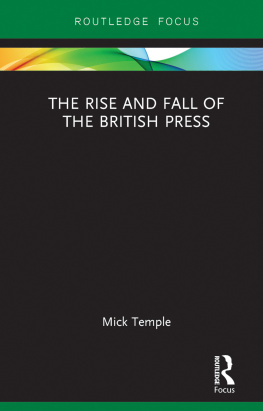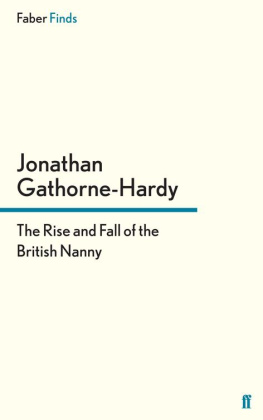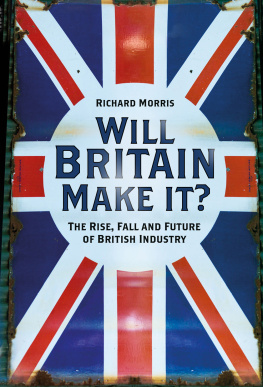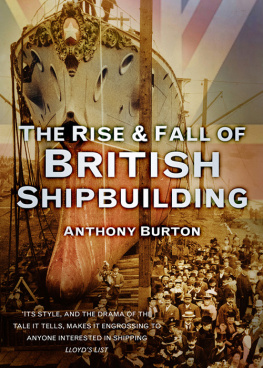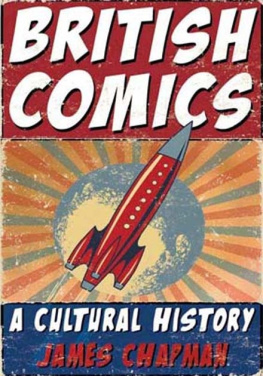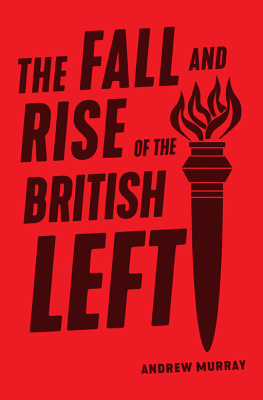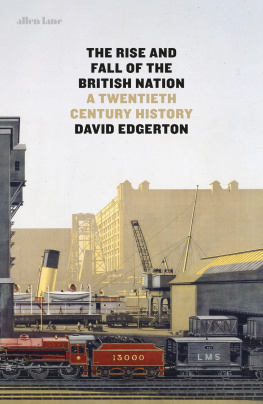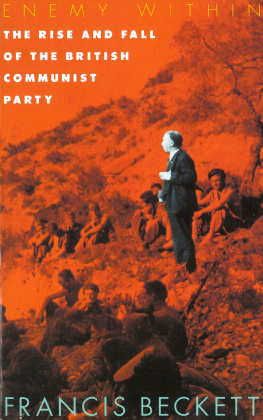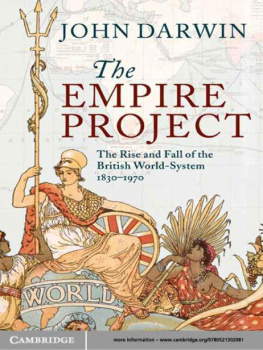The Rise and Fall of the British Press
The Rise and Fall of the British Press takes an artful look at the past, present and immediate future of the printed newspaper. Temple offers a thought-provoking account of the evolution of Britains news consumption across the centuries, situating it within significant social, cultural and political currents of the time.
Chapters cover:
- The impact of key technological developments; from the birth of print and the introduction of television, to the rise of the internet and digital media;
- The ever-shifting power play between political parties and the press;
- The notion of the public sphere and how newspapers have influenced it over the decades;
- The role of news media during some of Europes most significant historical events, such as the French Revolution, the First and Second World Wars and the Suez crisis;
- The aftermath of the Leveson inquiry and the question of increased media regulation;
- The successes and failures of important media players, including Baron Beaverbrook and Lord Northcliffe in the nineteenth century, and Rupert Murdoch and Mark Zuckerberg in the twentieth and twenty-first centuries.
Throughout the book, parallels are drawn between current issues impacting on the press and society and those from previous decades, further illuminating the role, both historic and ongoing, of the news media in Britain. Temple concludes the book by looking to the future of print journalism, calling for a reassessment of its role in the twenty-first century, redefining what journalism should be and reasserting its value in society today.
This far-reaching analysis will be an invaluable resource for both students and researchers of journalism and media studies.
Mick Temple is Professor of Journalism and Politics at Staffordshire University, UK. His books include The British Press (2008), Blair (2006) and How Britain Works: From Ideology to Output Politics (2000). He is Co-Editor of the journal Journalism Education.
The Rise and Fall of the British Press
Mick Temple

First published 2018
by Routledge
2 Park Square, Milton Park, Abingdon, Oxon OX14 4RN
and by Routledge
711 Third Avenue, New York, NY 10017
Routledge is an imprint of the Taylor & Francis Group, an informa business
2018 Mick Temple
The right of Mick Temple to be identified as author of this work has been asserted by him in accordance with sections 77 and 78 of the Copyright, Designs and Patents Act 1988.
All rights reserved. No part of this book may be reprinted or reproduced or utilised in any form or by any electronic, mechanical, or other means, now known or hereafter invented, including photocopying and recording, or in any information storage or retrieval system, without permission in writing from the publishers.
Trademark notice: Product or corporate names may be trademarks or registered trademarks, and are used only for identification and explanation without intent to infringe.
British Library Cataloguing-in-Publication Data
A catalogue record for this book is available from the British Library
Library of Congress Cataloging-in-Publication Data
A catalog record for this book has been requested
ISBN: 978-1-138-89510-2 (hbk)
ISBN: 978-1-315-17965-0 (ebk)
Typeset in Times New Roman
by Apex CoVantage, LLC
This book is dedicated to my daughter, Georgia Kliment-Temple, with love
Contents
Introduction
Before the World Wide Web, no other invention in human history challenged the powerful as much as printing. For the first time, ideas circulated directly to a mass audience and inevitably challenged the received wisdom of churches and states who had a vested interest in perpetuating long-established notions of their right to rule. Equally inevitably, established rulers attempted to censor that potential power. Those attempts were ultimately as pointless as those in the twenty-first century which seek to constrain the free expression of views via electronic media. However, unlike the decline of the printed newspaper, which has been dramatic and swift, the rise of a political press was slow and, literally for many brave pioneers, tortuous.
Early news
As the first human civilisations developed, those early communities needed to transmit news over distances, generally by relays of messengers, beacons, signallers and drums. Reliable communications became easier with the development of writing. The Sumerians of 3500 BC developed a pictographic system on clay tablets, but the Egyptian invention of papyrus, a much lighter material, made the carrying of information easier. The Greeks improved the Phoenician alphabet (Allan 2004: 8), and their mastery of writing was a crucial element in their huge strides in scholarly knowledge. The transmission of news to the citizenry was also vital. For example, in ancient Rome, Julius Caesar decreed that reports (acta diurna) of important events were to be posted on public buildings.
Long before the arrival of printing, merchants and travellers carried reports of foreign events and trading conditions back to English ports. As trade expanded, the need for more frequent and reliable information led to private handwritten newsletters funded by banks or groups of merchants who established networks of information across Western Europe (Conboy 2004: 8). Paper arrived in Europe in the twelfth century and was first used in Britain in 1309, but parchment (made of animal skins) remained more popular even in the early years of printing (Allan 2004: 9). Literacy was limited to an educated elite. In many British towns, the official town criers (dating back at least to 1066) would read out proclamations to their largely illiterate audiences. Given that announcements could be unpopular (for example, the imposition of new taxes), town criers were covered by royal protection to reduce the chance of attacks. Ballads and broadsheets sung in the streets were the main source of news for the masses (Harrison 2006: 46). The circulation of handwritten pamphlets and ballads on a variety of subjects indicates the urge of all classes for up-to-date information news and entertainment was well established before the arrival of printing. But the printing press would challenge the ruling elites control of information.
The birth of print
Moveable type, using porcelain characters, was invented by the Chinese in the eleventh century. Around 1450 in Germany, Johannes Gutenberg built a printing press using metal type, and his famous Gutenberg Bible is probably the first printed book in Europe. In 1475 (while in Germany) William Caxton published the first printed book in English, Recuyell of the Historyes of Troye. A year later, Caxton set up Britains first printing press in Westminster. In 1513, the first known surviving news pamphlet was printed; prepared with royal authority, its purpose was largely propagandist (Conboy 2004: 9). At the start of the sixteenth century there were only five printers in London, but by 1523 there were 35. Soon scholars, who for centuries had been expected to be polymaths, were complaining of information overload: there were too many books for one man to read.
Initially, presses were strictly controlled. The Tudor monarchs forbade private presses outside London, making exceptions only for the universities of Oxford and Cambridge. Some official bodies had a legal right of censorship, including the Privy Council and Church authorities (Harrison 1974: 10). Queen Elizabeths reign saw the severest sanctions: it became a capital offence to publish seditious material (Griffiths 2006: 4). Despite this, imported works continued to introduce radical continental ideas.

